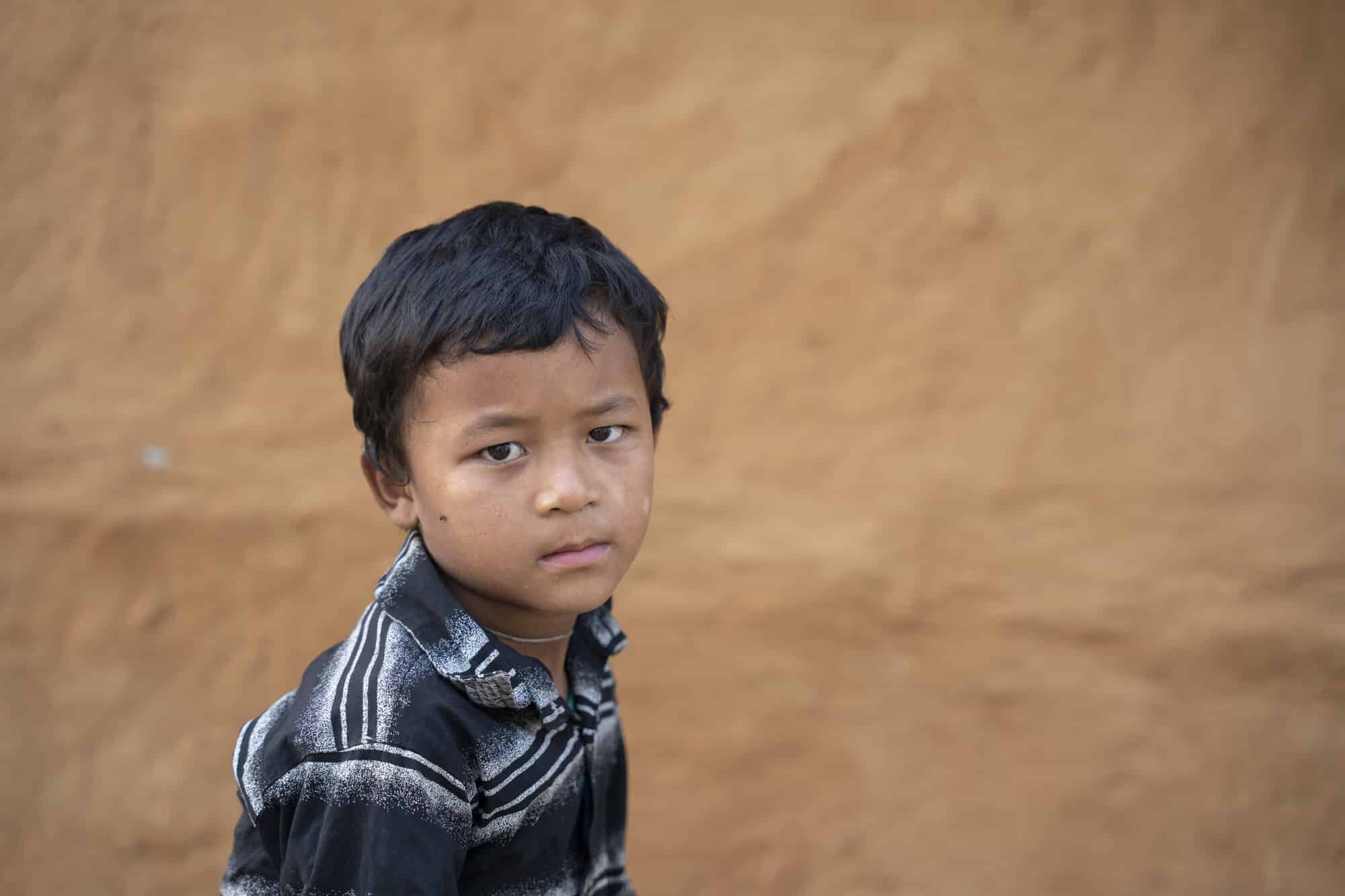Many children growing up in Nepal’s orphanages regularly go hungry, suffer beatings, and live in constant fear.
Even worse, 85% of these children aren’t actually orphans. Instead of growing up at home, safe and loved, children are trapped inside orphanages – homesick, lonely and afraid.
This Christmas, we urgently need your support to help reunite children in orphanages with their families. Watch our video and read on below to find out how you can help keep children safe from harm.
How many children are in orphanages in Nepal?
Right now, over 10,000 children are shut away in 400 orphanages across Nepal. Cut off from their family, community, and culture. Most of these children have at least one living parent who they could – and should – be growing up with. But poverty, limited access to education and widespread misconceptions about orphanages cause families to be torn apart.
What happens to children in orphanages?
Tragically, many children in Nepal’s orphanages often experience hunger and beatings, as you’ll hear from Tabita* and Moti* in the film. Many live in constant fear of being scolded and punished. And often they don’t even know that they have living parents.
When Moti shared his story with me earlier this year, it broke my heart. “I was only four when they took me away,” he explained. “I stayed there for 12 years. I didn’t even know I had parents. We got beaten a lot – with pipes, sticks, bamboo strips. In my heart, all I felt was fear.”
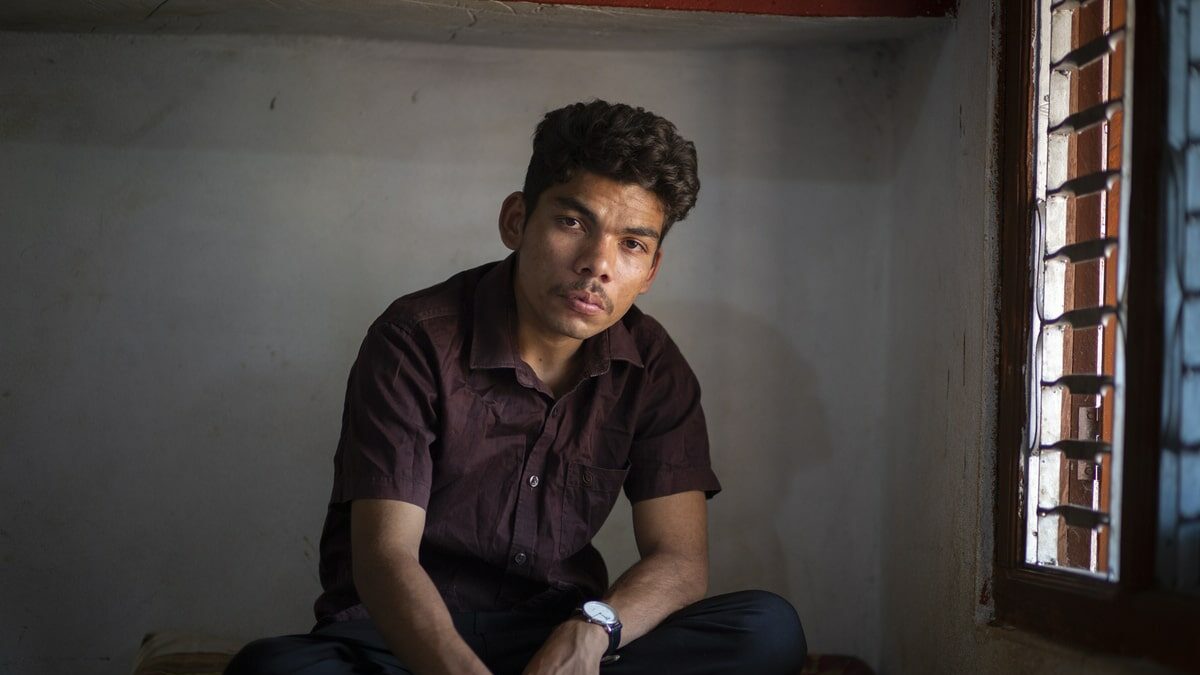
Unaware of these children’s heartbreaking experiences, 70% of people in the UK think orphanages are a good thing. But sadly, they’re mistaken. Even the most well-run orphanages don’t help children; they harm them by denying them their fundamental human right to love, family and belonging.
So why are children left in orphanages?
There are many reasons why children end up in orphanages but three main reasons in Nepal are:
- Poverty. Global inequality exacerbated by skyrocketing global prices means many parents can’t afford basics like food and school supplies. This makes them vulnerable to widespread misconceptions that orphanages can offer their child a better future, by guaranteeing food, shelter and education.
- Lack of access to education. Many parents want to send their children to school to give them the best chance in life. But in poor remote areas where the closest school is still a long walk away and parents can’t afford school fees and books, sending children to orphanages is seen as a good alternative.
- Trafficking. Many orphanages in Nepal operate as businesses with the purpose of making money. Children are often trafficked from poor remote areas into these orphanages – or so-called ‘child care homes’ – to elicit donations from well-meaning but misinformed tourists or donors.
Dambari Maya, below, is one of thousands of parents who’ve been persuaded to give up their precious children.
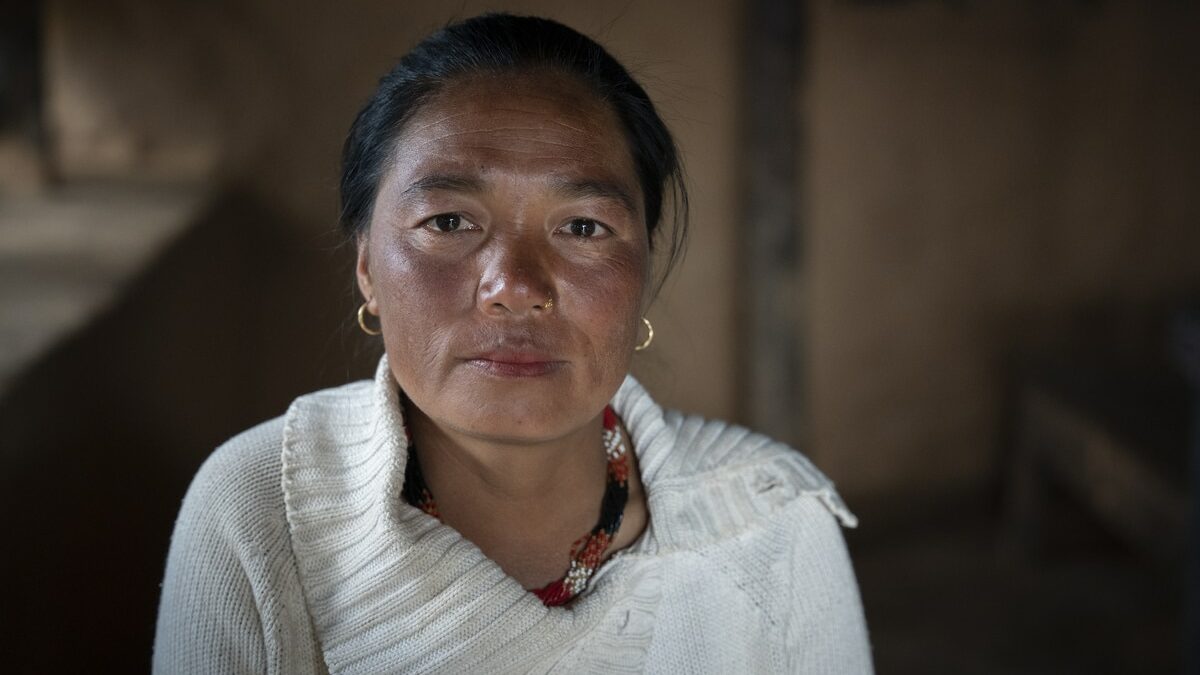
“We didn’t have enough to eat,” she explained to me. “The men who took my children told me they’d educate them and feed them well. I trusted them. But I suffered, and my children suffered too. I didn’t understand then. But now I do. And things have to change.”
With your support, we can make that change happen and reunite children with their families. Children like Sunil.
How we reunited Sunil with his family
Sunil, six, is from the Chepang community – one of the most marginalised indigenous groups in Nepal. Determined to get Sunil the education she never had, his mum, Lata* was persuaded to send him to an orphanage.
“I didn’t want to send him,” Lata said, keen to explain the terrible decision she felt compelled to make. “My heart ached thinking about him. But I would tell myself that taking him back would ruin his future.” Sadly, Sunil suffered for two long years, desperately missing his mother.
When Lata visited him, Sunil would say: “Mummy, I don’t want to go back to the orphanage. I don’t like that place. There are older children there that beat me. Please let me come home.”
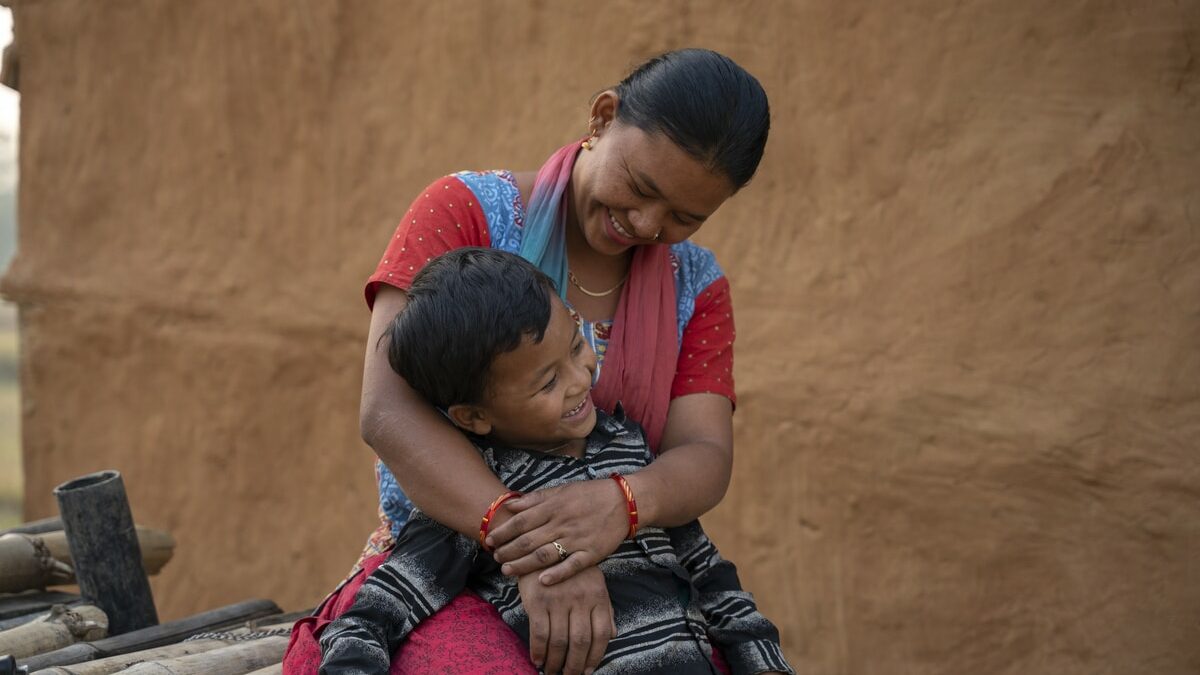
Last year, my colleague Rohan traced Sunil’s parents, counselled them and offered the financial support they needed to bring him back. “Things used to be hard,” Lata told me, “but thanks to the support we’ve received, life is much easier. I am so happy. Now Sunil can sit in my lap and be loved.”
How can I help children in orphanages this Christmas?
Sunil’s just one of 26 Chepang children we’ve reunited with their families from two orphanages in Chitwan District. But there are still 37 children left living there. This Christmas, you can help us keep them safe from harm.
We’ve already traced their parents. But just like Sunil’s parents, with limited opportunities to earn an income, Chepang families need support to put food on the table and afford education.
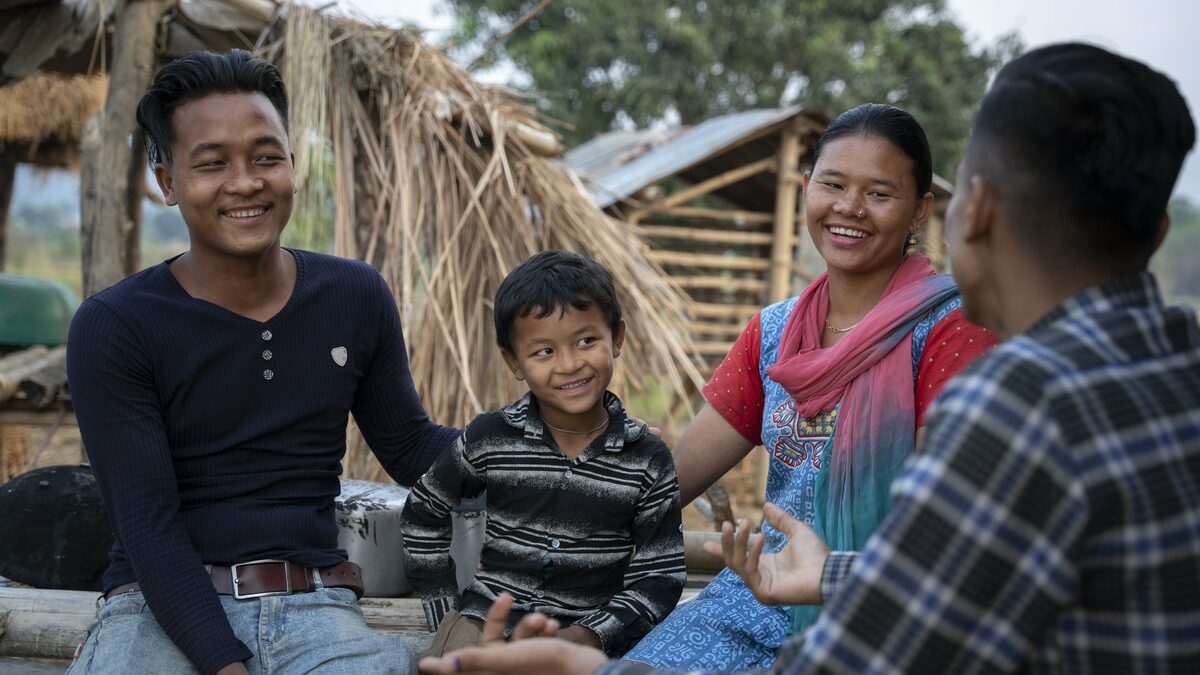
How will my donation help children in orphanages?
Your donation could help parents cover education costs, from books and uniform to school fees and a bike to get to class. For parents like Lata, these basic items could be what enables them to bring their families back together.
Your donation could also help my team prevent more children being sent away, by telling more parents the truth about orphanages, and lobbying for better schools in remote areas so children can study near home.
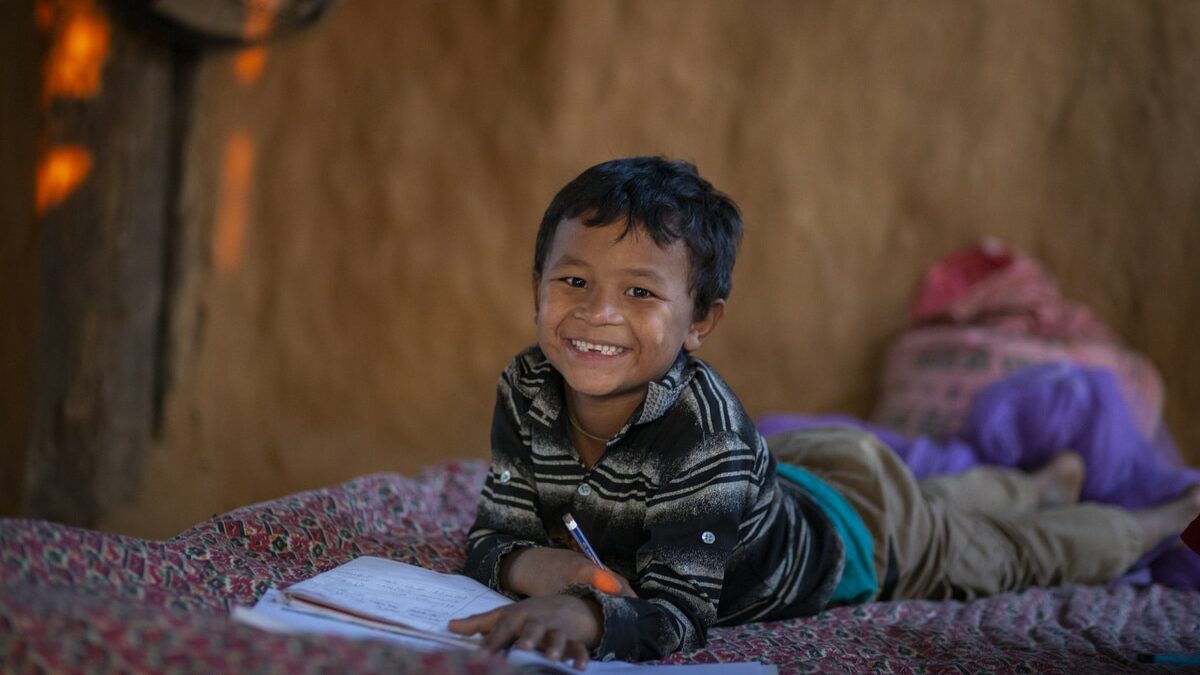
Every day a child is in an orphanage could be another day of hunger, of beatings, of longing for someone to love them.
Please donate to our Christmas appeal to help reunite children with their families and keep them safe from harm, and free from fear.
All Hope and Homes for Children’s work in Nepal is done through supporting our two local partners – The Himalayan Innovative Society (THIS) and Forget Me Not (FMN). The National Child Rights Council has acknowledged our collective expertise and efforts and now sees FMN and THIS as leading organisations on childcare reform in Nepal.
*Names changed to protect identity. | All photos by Kishor Sharma / Hope and Homes for Children
